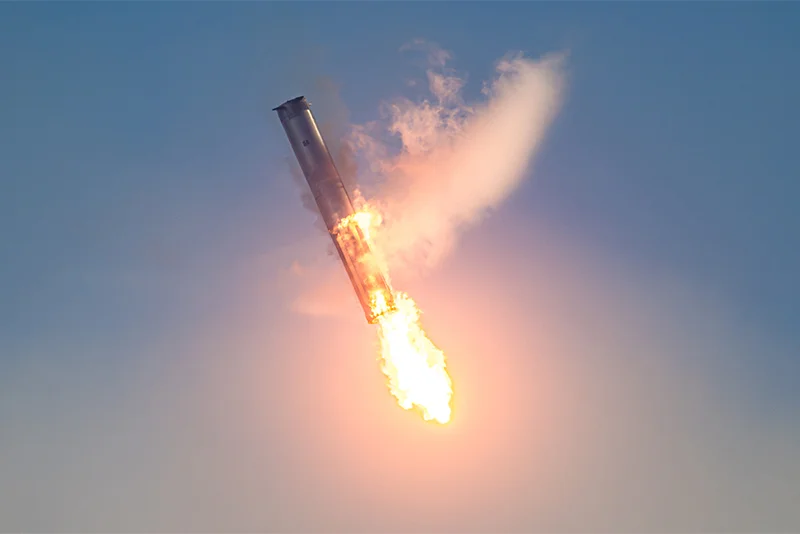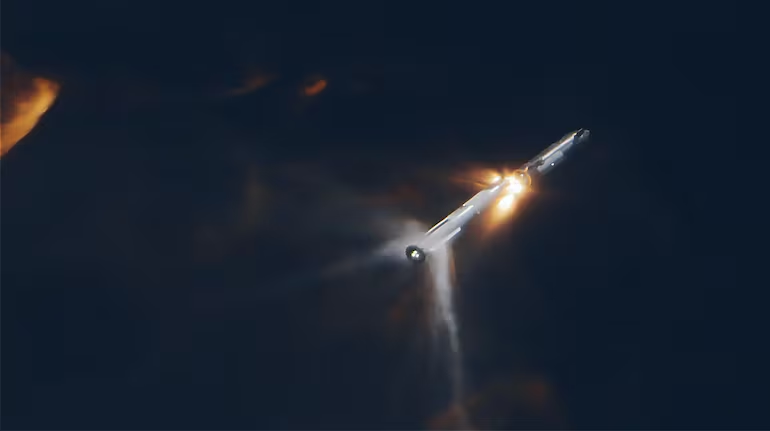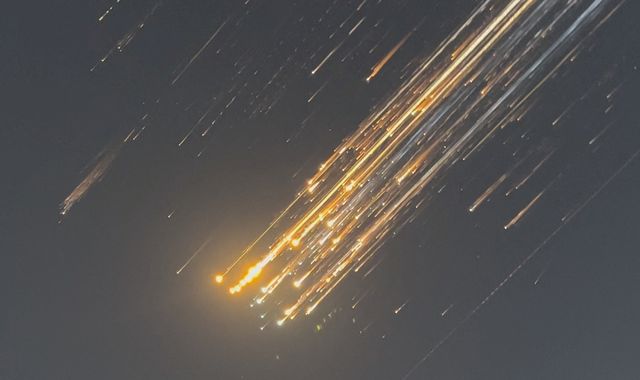A SpaceX Starship rocket disintegrated in space shortly after launching from Texas on Thursday, prompting commercial airlines to reroute flights over the Gulf of Mexico to avoid debris and delaying Elon Musk’s ambitious space program.

The rocket, carrying a test payload of mock satellites but no crew, lost communication with SpaceX mission control about eight minutes after liftoff from the company’s South Texas launch facility at 5:38 p.m. EST (2238 GMT).
Video footage captured by Reuters showed orange fireballs streaking across the sky above Port-au-Prince, Haiti, leaving smoky trails behind.
“We lost all communications with the ship, which suggests an anomaly in the upper stage,” SpaceX Communications Manager Dan Huot said, confirming that the spacecraft was destroyed.
The last Starship upper-stage failure occurred in March 2022 as it reentered Earth’s atmosphere over the Indian Ocean. However, this incident marked one of the rare occasions a SpaceX mishap disrupted commercial air traffic.

Flight-tracking website FlightRadar24 reported that dozens of flights diverted to alternate routes or airports to avoid potential hazards. Departures from Miami and Fort Lauderdale airports in Florida were delayed by approximately 45 minutes.
The Federal Aviation Administration (FAA), which oversees private spaceflight operations, briefly restricted air traffic in the affected area but has since restored normal operations. An FAA investigation is expected, potentially grounding future Starship launches until safety concerns are resolved.
The upgraded Starship model, standing 2 meters (6.56 feet) taller than its predecessor, was designed as a “new-generation ship with significant upgrades,” according to SpaceX’s mission briefing. The spacecraft was intended to make a controlled splashdown in the Indian Ocean about an hour after launch.
SpaceX CEO Elon Musk revealed that a preliminary review of the failure indicated a liquid oxygen fuel leak, which caused excessive pressure buildup and ultimately led to the rocket’s breakup.
The setback threatens Musk’s goal of conducting at least 12 Starship test flights in 2025. “Nothing so far suggests pushing the next launch past next month,” Musk stated.

This latest mishap comes amid heightened scrutiny of SpaceX’s rapid test-to-failure development approach. The FAA may investigate whether debris from the explosion fell outside the predetermined hazard zone or into populated areas.
Musk has repeatedly criticized the FAA for imposing regulatory delays, calling them politically motivated. He previously demanded the resignation of FAA Administrator Mike Whitaker, who announced plans to step down in December.
Thursday marked the seventh Starship test since 2023. Musk’s multi-billion-dollar effort aims to develop a rocket capable of transporting humans and cargo to Mars while deploying large satellite batches into orbit.
Despite the failure, SpaceX successfully recovered its Super Heavy booster, which returned to its launchpad approximately seven minutes after liftoff. Using its Raptor engines, the booster executed a controlled descent, attaching itself to mechanical arms on the launch tower as planned.



